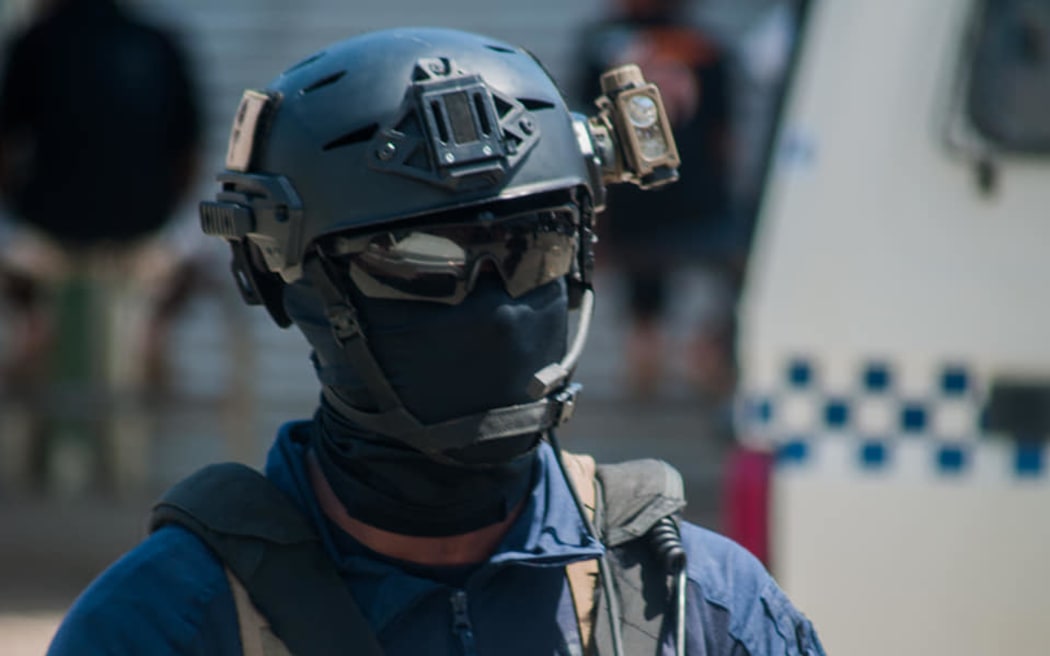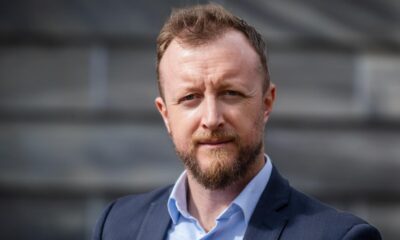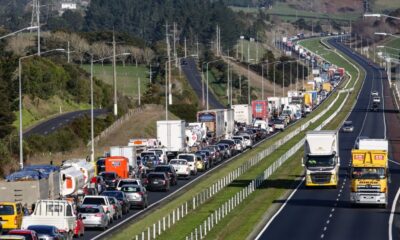World
Solomon Islands Considers Establishing Military Amid Security Concerns

The government of the Solomon Islands is exploring the possibility of establishing its own military, a move that could position the nation as the fourth in the Pacific region to have a formal defence force. This proposal has sparked a mixed response among parliamentarians, with some supporting the initiative while others express caution due to the country’s turbulent history of civil unrest.
National Security Minister Jimson Tanagada announced in parliament last week that the government is in the early stages of assessing the feasibility of forming a defence force. He emphasized, “This is not an attempt to militarise our nation, but rather a long-term nation-building effort aimed at enhancing the Solomon Islands’ resilience, sovereignty, and self-reliance.” Tanagada acknowledged the need for a careful approach, highlighting the escalating geopolitical tensions in the region. He stated, “There’s no fixed time frame, but the urgency is there given the evolving security challenges.”
The Solomon Islands has previously faced significant challenges regarding its police force, which once included a para-military unit. Following a civil conflict in the early 2000s, during which police weapons were used against civilians, a complete ban on firearms was instituted. It took over a decade to rebuild public trust in the police forces before they could begin to rearm.
Opposition Leader Matthew Wale respects the government’s initiative but urges caution, stating, “We must learn from our own civil conflict.” He referenced the military coups in Fiji and incidents in Papua New Guinea, where soldiers took control during disputes over pay. Wale argued for political collaboration in shaping any military policy, saying, “This issue is so critical that we, as representatives, must help to inform it, influence it, mould it, and shape it right from the word go.”
Former Prime Minister Manasseh Sogavare, who first proposed the establishment of a defence force following a trip to China in 2023, stressed the importance of government control over any armed force. He pointed to the broader regional security context, remarking, “I heard Papua New Guinea is brokering a peace treaty with America that allows military assets to land at any time without permission. These are serious matters that we need to discuss regarding regional security.”
Jeremiah Manele, currently serving as Prime Minister, noted that a Solomon Islands military could play a role in addressing sub-regional crises. He mentioned the existing defence forces of Papua New Guinea and Fiji, stating, “Solomon Islands and Vanuatu do not have defence forces, which creates a gap in regional discussions.”
Despite the potential benefits, Manele acknowledged that financial constraints pose a significant challenge. He stated that resources allocated for a military should not detract from the needs of the Royal Solomon Islands Police Force, which is currently responsible for national defence and security. “It’s not only about the numbers but also the cost in terms of sustaining these arrangements,” he remarked.
Supporters of the military initiative believe it could enhance both national and regional security. Nonetheless, the extent to which constituents support this proposal remains uncertain as discussions progress. As the Solomon Islands navigates its future security landscape, the balance between building a defence capability and learning from past conflicts will be crucial.
-

 World1 week ago
World1 week agoPrivate Funeral Held for Dean Field and His Three Children
-

 Top Stories2 weeks ago
Top Stories2 weeks agoFuneral Planned for Field Siblings After Tragic House Fire
-

 Sports3 months ago
Sports3 months agoNetball New Zealand Stands Down Dame Noeline Taurua for Series
-

 Entertainment3 months ago
Entertainment3 months agoTributes Pour In for Lachlan Rofe, Reality Star, Dead at 47
-

 Entertainment2 months ago
Entertainment2 months agoNew ‘Maverick’ Chaser Joins Beat the Chasers Season Finale
-

 Sports3 months ago
Sports3 months agoSilver Ferns Legend Laura Langman Criticizes Team’s Attitude
-

 Sports1 month ago
Sports1 month agoEli Katoa Rushed to Hospital After Sideline Incident During Match
-

 World3 weeks ago
World3 weeks agoInvestigation Underway in Tragic Sanson House Fire Involving Family
-

 Politics2 months ago
Politics2 months agoNetball NZ Calls for Respect Amid Dame Taurua’s Standoff
-

 Top Stories2 weeks ago
Top Stories2 weeks agoShock and Grief Follow Tragic Family Deaths in New Zealand
-

 Entertainment3 months ago
Entertainment3 months agoKhloe Kardashian Embraces Innovative Stem Cell Therapy in Mexico
-

 World4 months ago
World4 months agoPolice Arrest Multiple Individuals During Funeral for Zain Taikato-Fox





















